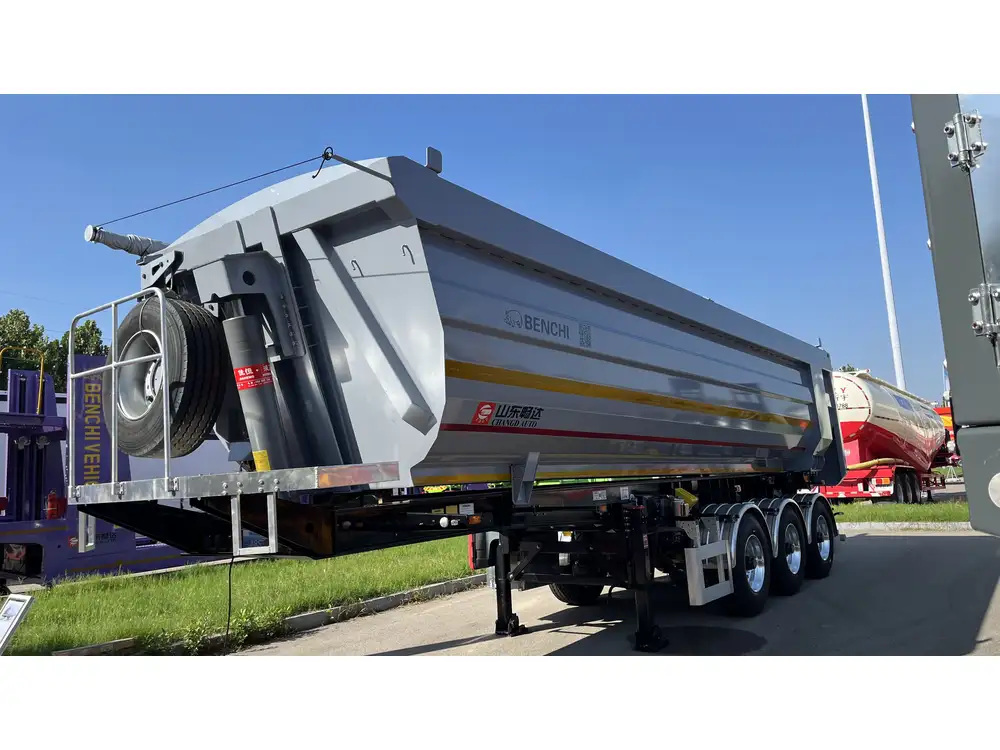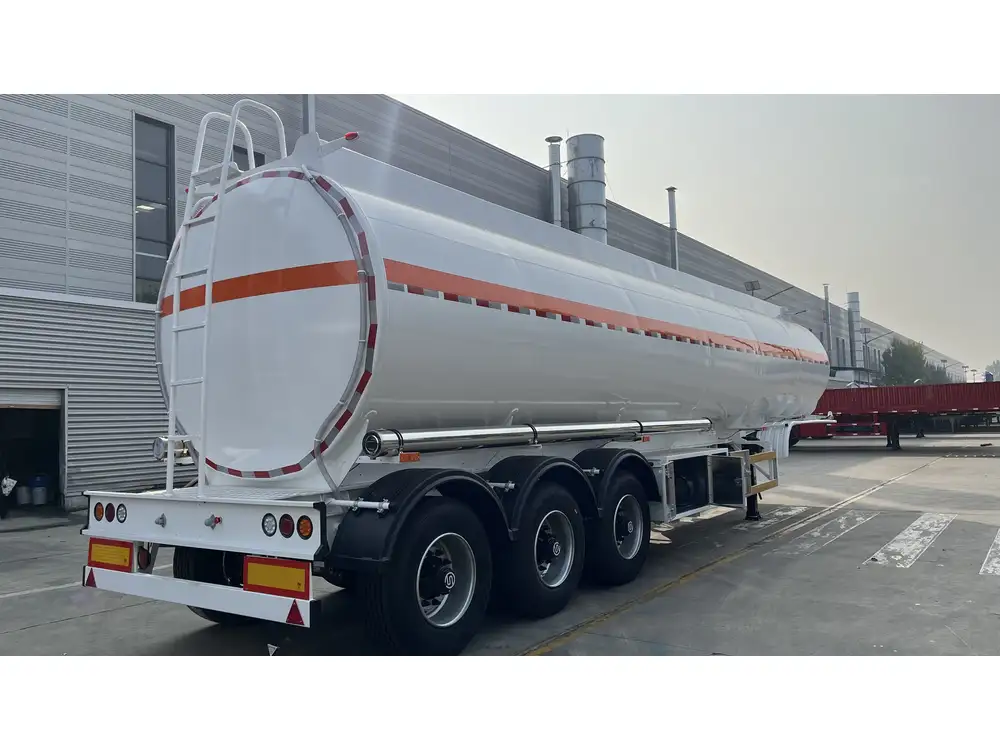Dump trailers are a crucial asset in various industries, particularly in construction and landscaping. Understanding the type of battery that powers these vehicles significantly impacts their performance, longevity, and efficiency. In this guide, we will delve deep into the common types of batteries used in dump trailers, the factors to consider when selecting a battery, maintenance tips, and answers to frequently asked questions.
Understanding Dump Trailer Battery Requirements
Dump trailers typically rely on batteries to operate hydraulic systems that control the lifting and lowering of the trailer bed. The demands of these systems can vary depending on the trailer’s size, the payload capacity, and the frequency of usage. Commonly, users may encounter three primary types of batteries: lead-acid, AGM (Absorbent Glass Mat), and lithium-ion. Each type features distinct characteristics, advantages, and disadvantages.
1. Lead-Acid Batteries
Overview: Lead-acid batteries are among the oldest types of rechargeable batteries, characterized by their affordability and widespread availability.
Composition: These batteries consist of lead plates submerged in a sulfuric acid electrolyte.
Common Usage: Standard lead-acid batteries are utilized in most dump trailers due to their robust nature and ability to deliver high starting currents.
Advantages:
- Cost-Effective: Generally less expensive than other battery types.
- Reliability: Known for their ability to hold charge well under normal conditions.
Disadvantages:
- Weight: Heavier than alternative batteries, which can affect the trailer’s overall efficiency.
- Maintenance: Requires occasional maintenance, such as checking electrolyte levels and ensuring terminals are clean.

2. AGM (Absorbent Glass Mat) Batteries
Overview: AGM batteries are sealed lead-acid batteries that utilize a fiberglass mat to absorb the electrolyte.
Composition: These batteries have lead plates encased in a sealed unit, which prevents spillage and allows for a more compact design.
Common Usage: Preferred in applications requiring a more robust and maintenance-free option.
Advantages:
- Maintenance-Free: No need for periodic watering or terminal cleaning.
- Better Performance: Excellent resistance to vibration and extreme temperatures.
Disadvantages:
- Higher Price: Typically more expensive than traditional lead-acid batteries.
- Limited Lifespan: Although they provide better performance, their overall lifespan may be shorter under extreme usage.
3. Lithium-Ion Batteries
Overview: Lithium-ion batteries have surged in popularity due to their lightweight and high-energy density traits.
Composition: These batteries consist of lithium compounds and have advanced management systems for safety and performance.
Common Usage: Gaining attention in sectors that prioritize weight savings and rapid charge/discharge cycles.
Advantages:
- Lightweight: Significantly reduces the overall weight of the trailer.
- Longevity: Long lifespan with many charge cycles before capacity diminishes.
- Fast Charging: Capable of quick recharging, making them ideal for high-usage environments.
Disadvantages:
- High Initial Cost: More expensive upfront compared to lead-acid and AGM options.
- Temperature Sensitivity: Requires careful handling in extreme temperatures to avoid damage.
Comparison Table: Battery Types for Dump Trailers
| Feature | Lead-Acid | AGM | Lithium-Ion |
|---|---|---|---|
| Cost | Low | Moderate | High |
| Weight | Heavy | Moderate | Lightweight |
| Maintenance | Moderate | None | None |
| Lifespan | Short to Moderate | Moderate | Long |
| Discharge Characteristics | Moderate | Better than lead-acid | Excellent |
| Temperature Resistance | Moderate | High | Moderate |

Factors to Consider When Choosing a Battery for Your Dump Trailer
Choosing the right battery for a dump trailer is a multifaceted decision that influences not only daily operations but also the operational costs over time. Here are essential factors to consider:
1. Capacity and Voltage Requirements
Understanding the trailer’s power requirements is paramount. Typically, dump trailers operate on a 12V system, but larger trailers or specialized applications may require 24V systems, especially when equipped with powerful hydraulic pumps. Consider the following:
- Amp-Hours (Ah): The capacity of the battery is measured in amp-hours, which indicates how long the battery can supply a certain current before depleting. A higher Ah rating means longer usage before needing a recharge.
- Cold Cranking Amps (CCA): This measurement indicates the battery’s ability to start a vehicle in cold conditions. For dump trailers that operate in various environments, it’s crucial to select a battery with adequate CCA.
2. Weight Considerations
The weight of the battery can impact the overall efficiency and load capacity of the dump trailer. Lighter batteries, like lithium-ion, enhance fuel efficiency, make loading easier, and improve maneuverability.

3. Charging Compatibility
Understanding how the battery will be charged is fundamental. Some batteries have specific charging requirements and may not be compatible with all chargers. Assess the following:
- Charger Type: Make sure the charger is compatible with the battery type you choose.
- Charging Speed: Factors like the battery’s amp-hour rating and the capabilities of the charger’s output can influence downtime between uses.
4. Local Climate Considerations
The operating environment plays a significant role in battery selection and maintenance. For example:
- Cold Weather: In colder climates, the battery’s resilience to freeze and its CCA rating become critical.
- Hot Weather: Extreme heat can diminish the lifespan of certain battery types, particularly lead-acid.
5. Budget Constraints
While initial costs are critical, evaluating the total cost of ownership over the battery’s lifespan can provide better insight into your return on investment. This includes potential replacements, maintenance costs, and operational efficiencies.

Maintenance Tips for Dump Trailer Batteries
Regardless of the battery type chosen, maintaining it properly can lead to enhanced performance, longevity, and reliability. Below are key maintenance practices:
1. Regular Inspections
Conduct routine checks on battery terminals, cables, and the battery case for any signs of corrosion, loose connections, or physical damage.
2. Cleaning Corrosion
Use a mixture of baking soda and water to clean corroded terminals. Ensure power is disconnected before cleaning to avoid short-circuits.

3. Monitoring Charge Levels
Keep an eye on the battery’s state of charge; deep discharges can significantly reduce its lifespan. Using a multimeter can help in monitoring voltage levels.
4. Watering Lead-Acid Batteries
For traditional lead-acid batteries, ensure electrolyte levels are adequate. Add distilled water as needed, but avoid overfilling.
5. Proper Storage
If the dump trailer will be unused for an extended period, store the battery in a cool and dry place, and periodically check its charge.

Frequently Asked Questions (FAQs)
1. How Long Does a Battery Last in a Dump Trailer?
Battery lifespan can vary based on usage patterns, battery type, and charging practices. Generally, lead-acid batteries last between 3-5 years, AGM batteries around 4-6 years, and lithium-ion batteries can exceed 10 years if properly maintained.
2. Can I Use a Car Battery in a Dump Trailer?
While technically possible, car batteries are designed for short bursts of high current and may not hold up well under the continuous discharge demands of a dump trailer’s hydraulic systems.

3. What Type of Battery Charger Do I Need?
Using a charger specifically designed for the battery type you’re using (lead-acid, AGM, or lithium-ion) is vital for optimal charging without damaging the battery.
4. How Can I Extend My Dump Trailer Battery Life?
To extend battery life, ensure proper maintenance, avoid deep discharges, charge regularly, and store in ideal conditions when not in use.
5. Is It Worth Upgrading to Lithium-Ion Batteries?
Upgrading to lithium-ion batteries can provide weight savings, increased efficiency, and longer lifespan, but it’s essential to consider initial costs and compatibility with your trailer’s systems.

Conclusion
Selecting the correct battery type for a dump trailer is a vital decision that impacts overall efficiency, performance, and operational functionality. Whether opting for a cost-effective lead-acid battery, a robust AGM option, or transitioning to innovative lithium-ion technology, understanding the specific requirements of your trailer and its intended use is key to making an informed choice. By considering factors such as capacity, weight, and maintenance, and following consistent maintenance practices, operators can ensure their dump trailers remain reliable assets for years to come.



